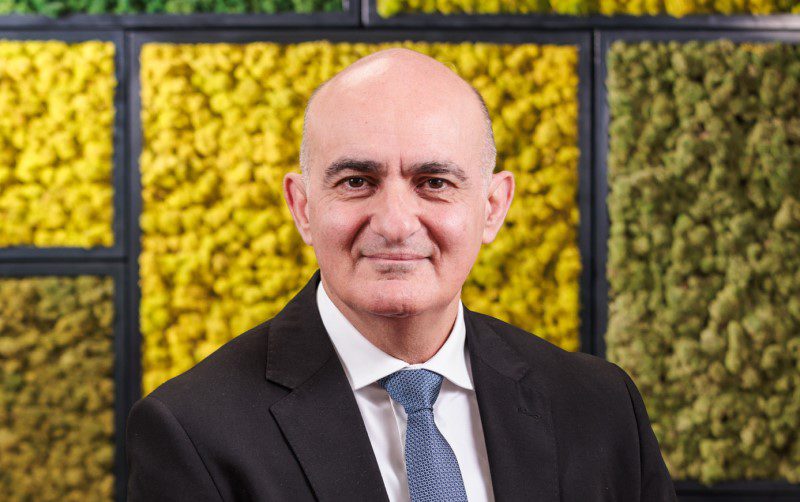Hoteliers have shared their concerns with MaltaCEOs.mt regarding the introduction of Malta’s skills pass and the fees incurred by applicants, fearing the high costs will discourage prospective employees from coming to take up much needed hospitality work in Malta.
The skills pass measure is a set of new rules designed to ensure foreign workers in Malta’s hospitality and tourism sectors have the necessary skills to provide a quality service. Last month, it came into effect for workers who are getting a work permit for the first time. From 1st January 2025, those already in Malta will need to obtain the skills pass upon renewal of their work permit.
The initial phase of the programme includes a mandatory online course covering English language proficiency, customer care, general hospitality practices, and knowledge of Malta’s tourist offerings. The second phase entails an online verification interview. In total, this programme costs non-EU nationals coming to Malta to work in the industry €475.
Speaking to MaltaCEOs.mt, local hoteliers have stated that while the skills pass aims to improve the quality of the workforce, it is having a negative impact on recruitment in the hospitality industry, an industry already facing personnel challenges.

Simon De Cesare, CEO at Eden Leisure Group, which owns and operates InterContinental Malta and Holiday Inn Express Malta, remarked that the skills pass is an “added cost as well as a detriment in attracting talent to the country.”
Embassy Valletta Hotel General Manager Hubert Debono described the fees to obtain a skills pass as “exorbitant,” especially when added to visa and work permit costs.
“This additional cost may deter top candidates, making it essential for us to offer competitive salaries and excellent working conditions to attract and retain the best employees,” he continued.
Malta Enterprise, in collaboration with the Institute of Tourism Studies (ITS) in May launched a new support measure, providing a subsidy of up to 50 per cent of costs incurred up to the end of 2024 to employers who are committed to enhancing their workforce’s skills sets through the skills pass.
However, Claire Zammit Xuereb, Director of Hospitality and Care at AX Group, remarked that since this is only available until December 2024, it “offers no long-term support” to hotels.

When asked whether they believe the skills pass will be successful in improving the hospitality industry’s workforce, the hoteliers, all hailing from four- and five-star hotels, stated that the workforce will ultimately improve thanks to continuous training from hotels.
Mr Debono remarked that the minimum requirements of the skills pass “do not necessarily translate into a knowledgeable and well-trained workforce,” and hence, training by hotels is “crucial to ensure a decent level of service.”
Alex Incorvaja, General Manager at Malta Marriott Resort and Spa, noted that given the number of hotels and opportunities in Malta, the industry needs an international supply of workers.
Mr De Cesare noted that the skills pass could prove to be beneficial to smaller hotels and restaurants which end up “hiring whatever they can find” due to limited options.
“In these cases, the skills pass will likely be a benefit to the overall experience, however we will see if this ends up being just another expensive cost,” he added.

This larger workforce has largely been necessitated by the increase in bed stock in Malta’s hospitality industry against a backdrop of record tourist arrivals, coupled with a shortage of local talent due to opportunities in other industry sectors. Industry leaders’ concerns are further compounded by the pace of supply of pipeline bed stock.
A recent study by the Malta Hotels and Restaurants Association (MHRA) in collaboration with Deloitte outlined that should all the ongoing projects come to fruition, there would be a 70 per cent increase in rooms available for tourists in Malta.
The respondents told MaltaCEOs.mt that this is an issue that could have lasting effects on the hospitality industry.
Ms Zammit Xuereb said that should occupancy rates start to decline, it would “jeopardise the economies of scale for many hotels, leading to a survival-of-the-fittest situation.” She noted that if supply continues to increase, there will be a price war, prompting hotels to lower their average room rate (ARR) to maintain the required occupancy.

Mr Debono said that the “relentless increase” in bed stock will have varying effects on existing properties.
“Hotels located in unique areas of Malta or those offering a distinct value proposition that is hard to replicate will likely continue to fare well. Conversely, hotels with mediocre products and average-to-low guest satisfaction ratings may only compete by reducing prices. This could lead to a decline in standards to remain profitable, creating a vicious cycle that could eventually put them out of business,” he explained.
Mr Debono noted that further growth could also have a ripple effect on the resident community, as the additional pressure on Malta beyond this point may “lead to unsustainable and undesirable consequences, both for the local community and the tourism industry overall.”
“With the bed stock in the pipeline, and thus the need to attract more tourists, this will undoubtedly put additional pressure on Malta’s infrastructure and environment, including the airport, waste management, public services and traffic, ultimately impacting the authenticity of our tourism product,” Mr Incorvaja said.
He called for the industry to be analysed holistically and continue to focus on the diversification of Malta’s tourism product through the promotion of niche segments that he remarked the Malta Tourism Authority is successfully doing. This flattens Malta’s seasonality curve, and gives it the right balance, thus avoiding risks of oversupply and over tourism to ensure a sustainable industry.
Despite the above concerns, the hoteliers stated that their rates have remained strong up to this point and they have a positive outlook for this summer, albeit being a late booking one.
However, they also emphasised the need for Malta to attract higher-spend tourists, that are all the same seeking value for money.
Mr Incorvaja said that even though Malta is achieving year-on-year record arrival numbers, in part due to new routes and frequencies connecting to Malta, five-star hotels rely on key feeder markets such as the UK and Germany.
“We have seen limited growth via legacy carriers, which are most important for the meetings, incentives, conferences, and exhibitions (MICE) segment, translating into more expensive fares, with the destination becoming less competitive compared to other Mediterranean and European countries that attract this type of travel,” he continued.
Ms Zammit Xuereb said that it is also important to acknowledge the “inherent volatility of the hospitality industry.”
In this respect, she referred to the news that FTI Touristik, Europe’s third-largest tour operator, recently filed for bankruptcy due to a drop in bookings and suppliers requesting advance payment.
“This event has caused market disruption across the industry, necessitating us to adjust our forecasts and revise our commercial strategy accordingly,” Ms Zammit Xuereb commented.
Business leaders weigh in on Malta’s proposed social media age restrictions
An initial restriction for those under 13 could later be extended to older age groups.
APS Bank: One of Malta’s most dynamic banking transformations
For Chief Strategy Officer Liana DeBattista, the Bank provides more than just financial services, it contributes to Malta's progress in ...
Local hosting, hybrid deployments and multi-cloud design: How to stay online when Amazon breaks
Hosting or replicating core systems locally also enhances sovereignty, compliance, and recovery capabilities
Impact with intent: Why strategic clarity is the foundation of modern brands
As Steves&Co. approaches its 20th anniversary next year, the agency’s rebrand marks a clear statement: strategy is the new creativity.









